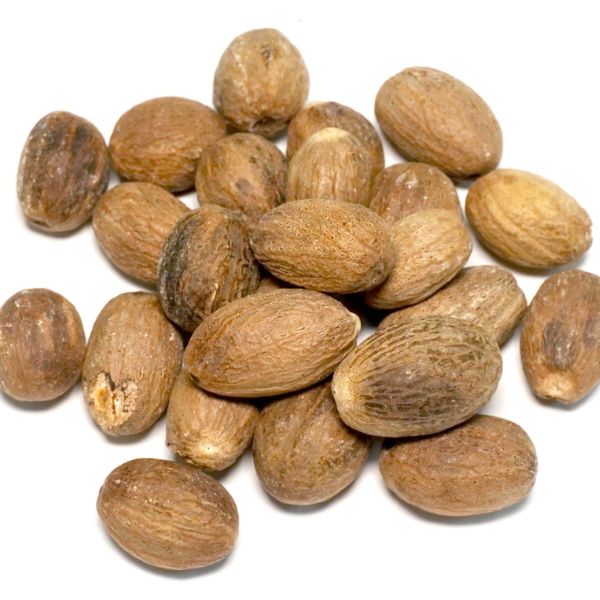Myristica fragrans, commonly known as nutmeg, is an evergreen tree native to the Moluccas (Spice Islands) of Indonesia but is now cultivated in various tropical regions around the world. Nutmeg is primarily known for its seeds, which are used as a spice and flavoring agent in culinary applications.
Nutmeg is a versatile spice used in both sweet and savory dishes. The seeds are ground or grated to produce nutmeg powder, which is used in baking, desserts, sauces, soups, and beverages. Nutmeg has a warm, aromatic flavor with hints of sweetness and a slightly nutty undertone. It pairs well with spices like cinnamon, cloves, and ginger.
Nutmeg has been traditionally used to support digestive health. It is believed to have carminative properties that can help alleviate digestive issues such as indigestion, bloating, and flatulence. Nutmeg is sometimes used in traditional remedies to promote healthy digestion.
Nutmeg is a good source of several important nutrients, including manganese, copper, and magnesium. It also contains small amounts of vitamins such as vitamin C, vitamin A, and various B vitamins.
Nutmeg has a distinct aroma that is often used in perfumery and the fragrance industry. It is used to create fragrances, soaps, and candles, and is valued for its warm and comforting scent.
Nutmeg has a history of use in traditional medicine systems. It has been used for its potential anti-inflammatory, analgesic, and antibacterial properties.
